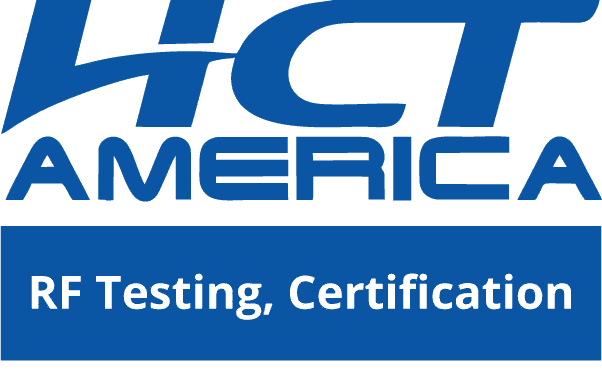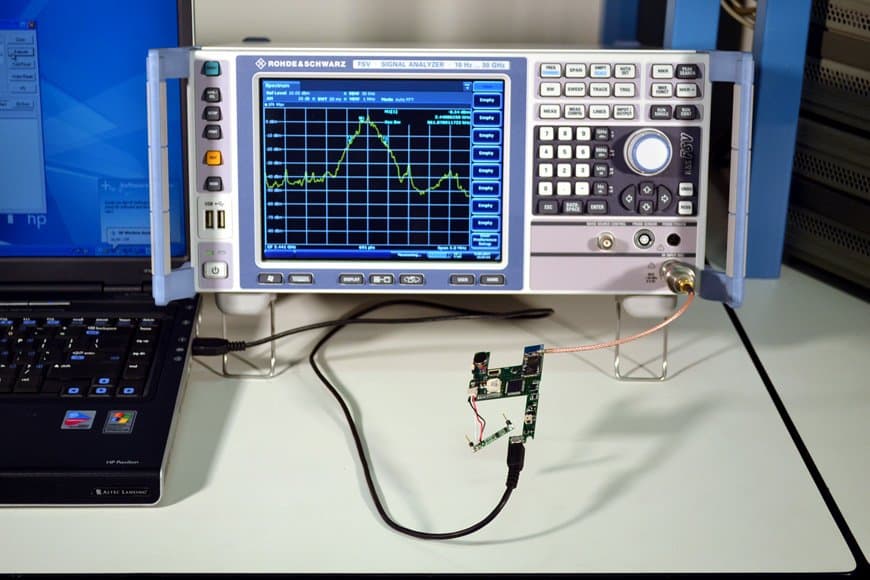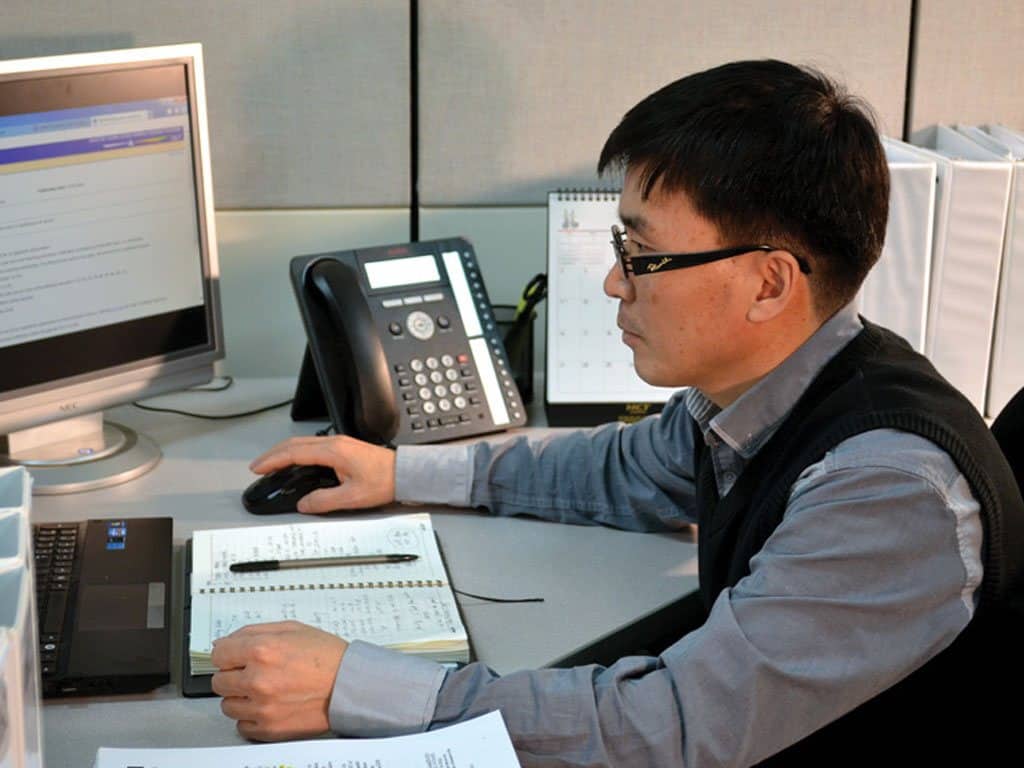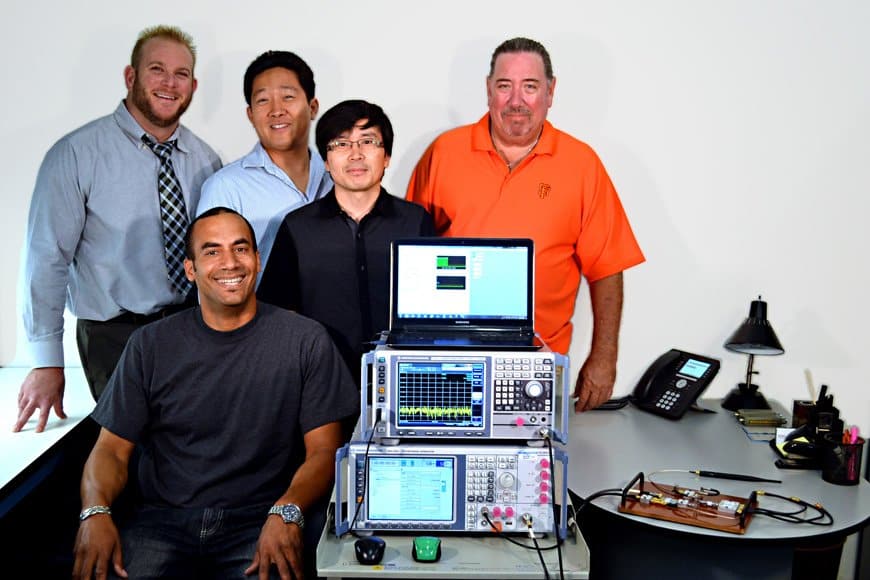RF Testing Approvals
HCT America provides complete RF certification services for more than 120 countries. For seamless application prep and handling, as well as Local Representative Services, HCT America is your one-stop solution to access the world’s markets.
Radio certifications can be complex, often involving SAR (Radiation Exposure), as well as the FCC Permit But Ask (PBA) protocols. Our reviewers have years of experience with every type of FCC Certification.
Why Worry About Radio Device Approvals
It is illegal to sell radio frequency (RF) devices, that don’t comply with the FCC standards in the United States.
The Office of Engineering and Technology (OET) authorizes radio frequency (RF) devices under 47 CFR Part 2 before allowing them to be imported or manufactured, and sold in the United States. The authorization process ensures that the RF devices in use do not cause harmful interference and comply with the rules set by the FCC.
What RF Devices Need Approvals?
Al intentional radiator devices are regulated by the Code of Federal Regulations, Title 47, Part 11 through Part 101. Radio Devices need to undergo a certification process and demonstrate compliance with the FCC rules before receiving a permission to be sold in the United States.
Incidental Radiators
(Motors, Switches)
AC and DC motors, basic electronic power tools without digital logic, and mechanical light switches are most common examples of incidental radiators. These devices are not designed to emit radio waves of frequency higher than 9 kHz, but radio emissions can be an unintentional by product of such devices under certain work conditions.
Unintentional Radiators
(USB Peripherals, Multimedia Products)
Personal computers, multimedia devices, and household appliances were not designed to emit RF energy, but they do. So the Subpart B of 47 CFR 15, Subpart B was written to regulate the radio waves coming out of such devices. The use of digital logic in unintentional radiators separates them from incidental radiators that do not employ digital logic in their functioning. Adding digital logic to an AC/DC motor can transform it from an incidental radiator into an unintentional radiator.
Intentional Radiators
(Universal Remote Controls, Wi-Fi)
A device that generates and emits RF energy intentionally. The emissions may be in the form of radiations (waves) or induction (physical contact). The radar systems used in modern cars, Bluetooth devices, and alarm systems are intentional radiators.
Industrial, Scientific, and Medical Devices
(Microwave Ovens, Wireless Chargers)
RF energy can be used for goals other than communication. Scientific tools to heat matter, ionize gases, generate mechanical vibrations, accelerate charged particles, and produce certain chemical effects rely on radio waves for their functioning. The FCC rules that they be tested under Part 18 of Code of Federal Regulations, Title 47.
Licensed Radio Services
(Smartphones, TV Transmitters)
The FCC considers products using licensed radio spectrum—such as cell phones, TV transmitters, and base stations—RF devices. So they have to undergo RF device approval testing.
GLOBAL REGIONS
//
AFRICA
- Algeria
- Cameroon
- Congo
- Egypt
- Ethiopia
- Ghana
- Kenya
- Libya
- Madagascar
- Malawi
- Morocco
- Nigeria
- Senegal
- South Africa
- Sudan
- Tanzania
- Tunisia
- Uganda
- Zambia
- and more…
North & South America
- USA
- Canada
- Argentina
- Bolivia
- Brazil
- Chile
- Colombia
- Cuba
- Dominica
- Ecuador
- El Salvador
- Guatemala
- Jamaica
- Mexico
- Nicaragua
- Panama
- Paraguay
- Peru
- Uruguay
- Venezuela
- and more…
Asia & Oceania
- Australia
- New Zealand
- Bangladesh
- China
- Hong Kong
- India
- Indonesia
- Japan
- Malaysia
- Mongolia
- Oman
- Papua New Guinea
- Singapore
- Sri Lanka
- Taiwan
- Thailand
- Vietnam
- and more…
Middle East
- Cyprus
- Iran
- Iraq
- Israel
- Kuqait
- Lebanon
- Qatar
- Saudi
- Syria
- UAE
- Yemen
- Jordan
- and more…
Europe & CIS
- European Union
- Russia
- Belarus
- Estonia
- Kazakhstan
- Latvia
- Lithuania
- Pakistan
- Ukraine
- Libya
- Croatia
- and more…
How to Get an RF Device Approval
The FCC documents a six-step process to getting an approval for your RF device.
- Determine FCC Rules that Apply. Find out if your product needs an RF device approval.
- Choose an Equipment Authorization Procedure. Your engineers can tell you if you need Certification, Declaration of Conformity (DoC), or Verification.
- Compliance Testing. Work with a TBC to get the testing process underway.
- Approval. Finalize the approval process based on the applicable approval procedure if your device is found to be compliant.
- Label/Manual/Record Retention. Label your product, and maintain a documentation of the entire testing process.
- Manufacture/Import/Market. Follow the FCC importation requirements.
The procedure sounds complex, but it isn’t if you have the expert engineers from HCT America to assist you.
HCT America to the Rescue
HCT America is an A2LA accredited Telecommunications Certification Body (TCB), recognized by the Federal Communications Commission (FCC), and Industry Canada recognizes HCT America as a Foreign Certification Body (FCB). We are accredited for all FCC and Industry Canada radio scopes.
These accreditations guarantee you, as a manufacturer or importer of electronic or electrical products in the United States, a highly-experienced and professional technical review staff for performing TCB, FCB and Certification Document reviews.
HCT America also employs a staff of friendly engineers who are always willing to answer your questions regarding the certification process as you are preparing your project schedule.
How Do We Help You?
Five ways we help expedite your RF device approvals.
Reasons to Team up with Us
Four reasons to teaming up with us for RF testing.

Frequently Asked Questions
Al intentional radiator devices are regulated by the Code of Federal Regulations, Title 47, Part 11 through Part 101. Radio Devices need to undergo a certification process and demonstrate compliance with the FCC rules before receiving a permission to be sold in the United States.
Radiated immunity tests measure the susceptibility of your device. Emissions from other devices in the surrounding area could affect your device. Immunity ensures that your device can withstand the emissions of surrounding gadgets. Otherwise, the interference can lead to a host of problems down the road.
Having a good idea of RF test labs standards is also imperative. If you want to ensure your product is ready to go to markets around the world, a high standard of testing must be carried out to ensure that it is truly safe and compliant. If an RF lab has a good reputation, it’s a good sign. It could be an idea to look at third-party review sites, as well as customer testimonials.
Radio frequency testing, otherwise known as RF testing, is required to ensure compliance of the wireless equipment that you’ve produced with international regulatory requirements. These requirements will allow your radio and telecommunications equipment to be sold in various markets around the world and it’s also a legal requirement to ensure that your wireless technology is safe to use. Without the right certification, your products will not be allowed on the market.
By ignoring RF testing, you pose the following risks to you and your company:
3 months imprisonment
A hefty monetary fine
Recalls on all of your products
Replacement of said products
Possible suspension of sales



